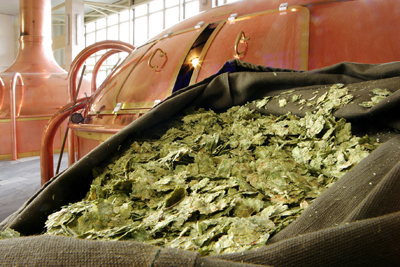Budweiser Budvar to be privatised
Czech Government mulls the sale of Budvar to raise budget revenues.
The world rubbed its eyes: Can it really be true that the Czech government will nod through the sale of Budvar? Yes, that’s what they are planning to do. And the reason is boringly normal: The cabinet needs resources for planned road construction and maintenance worth around CZK 30 billion.
As there is not a great deal left in the state’s coffers that can be sold off - apart from the brewery Budejovicky Budvar, there is Ceska posta, the postal services, Ceske aerolinie, the national air carrier, Ceske drahy, the rail transport operator, CEZ, the power producer as well as the state-owned forests Lesy CR and a few other ventures – it was only a matter of time before the government would think and do the hitherto impossible.
At the beginning of April the government opened talks about Budvar’s privatisation for the first time in years. However, the preparations for the possible sale will take some time, writes Lyle Frink from Prague.
A courtship dance is starting between Budvar’s management and politicians that could end in the privatisation of the Czech brewer. It is just not clear how close the American brewer Anheuser-Busch stands to the action.
The Czech Prime Minister and the Minister of Agriculture visited the brewer this April to review and give their approval to the new distribution deal between Budejovicky Budvar and the American Anheuser-Busch. They also agreed to transform the brewer’s ownership structure from the current “national enterprise” into a more traditional joint stock corporation – an essential step in any future privatisation. Although it is far from clear at this point how much of Budejovicky Budvar will be sold off, the trade mark alone was valued in excess of USD 1 billion several years ago. That is quite a lot for a brewery that has sales of about EUR 80 million.
After 18 years of a bumpy introduction into a market economy, Czechs are resigned to the potential privatisation of a brewery that has been intrinsic to their national identity since its founding in 1895.
“Do I think it should be sold off? No. But will the government do it? Yes,” said clerk Franta Kopecky.
“You bet the [government] bastards will sell it,” said pub owner Milan Pille.
After all, Czechs have sold off Skoda to Volkswagen and half of the local beer market when Pilsner Urquell went to SABMiller. And did these sales lead to a revolt? No. Czechs seem to have no qualms about quaffing foreign-owned beers: 45 percent of the Czech beer market is controlled by SABMiller, and 15 percent by InBev.
At the Frank Kafka café in the centre of Prague, the head waiter gave a split judgement. “Budvar has good management but companies just don’t do so well when owned by the government. But I don’t think the Americans should ever take it over – and Czechs would not drink their beer anyway.”
But, the issue is not what Czechs will drink. It is the rest of the world – and what the brew will be called. Budvar is an export driven brewery, sending abroad 48 percent of its total production in 2005. During the communist regime, exports had up to an 80 percent share of total production.
The century old dispute between the two brewers over the rights to Bud and Budweiser names took a fresh turn earlier this year when Anheuser-Busch agreed to take over the U.S. distribution of Budejovicky’s Czechvar brand. At the beginning stages, this agreement appears to be a win-win situation for both parties: while the Czechs can tap Anheuser-Busch’s immense distribution ability in the U.S. market, Anheuser-Busch gets a premium beer to add to its portfolio.
The agreement does not impact the ongoing legal disputes between the two brewers. But, under the surface, this clears the way for Budvar’s management to at least claim progress towards a resolution of the trademark dispute – an issue that has derailed earlier attempts by both Budvar’s management and Anheuser-Busch to privatise the brewery.
The move towards privatisation comes at a good time for the Czech brewery. In 2006, the brewery increased total sales volume by 5 percent to 1.15 million hl beer. According to Budvar, sales increased both in its domestic market (3%) and in export markets (7%) especially in the key markets of Germany (190,000 hl), Great Britain (106,000 hl), Slovakia (60,000 hl), and Austria (45,000 hl).

